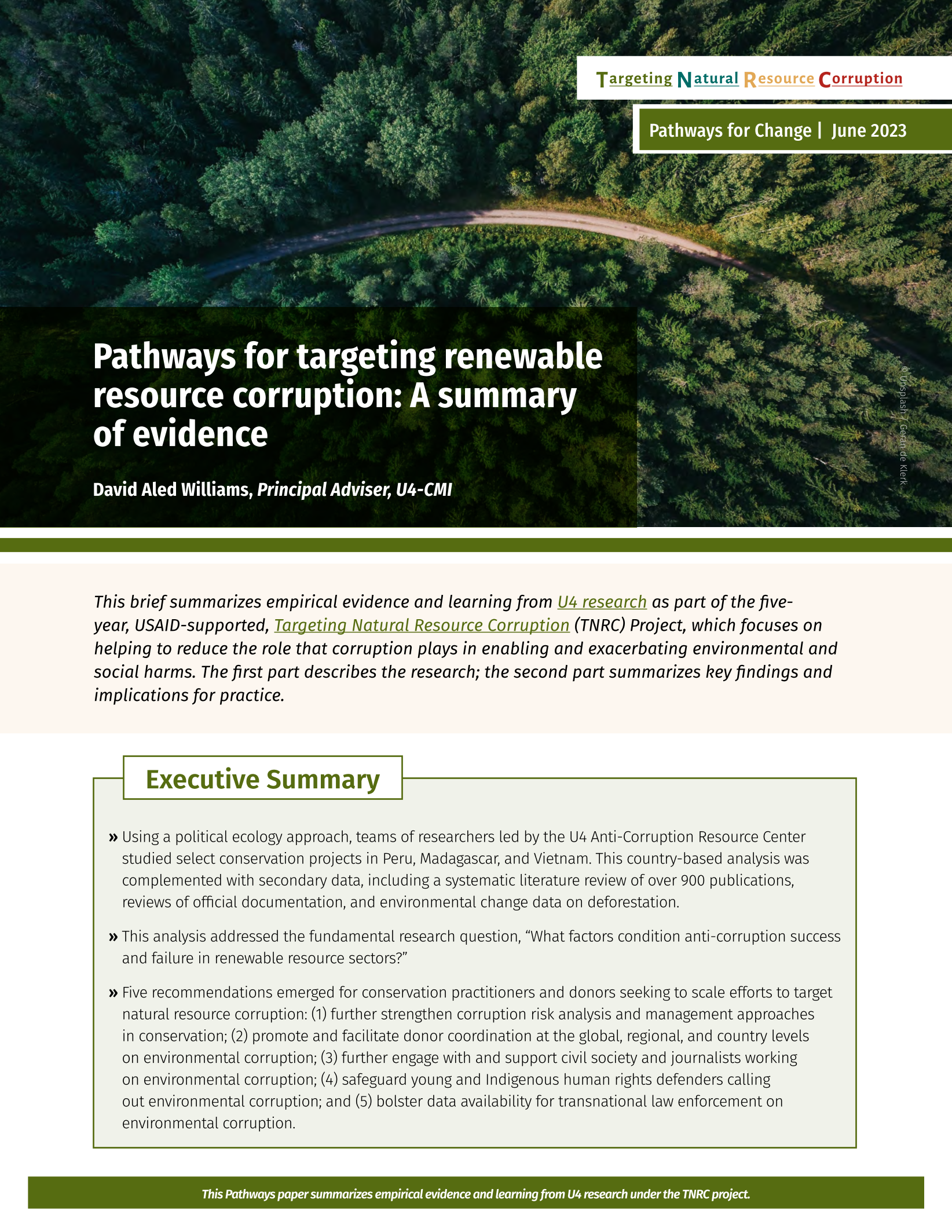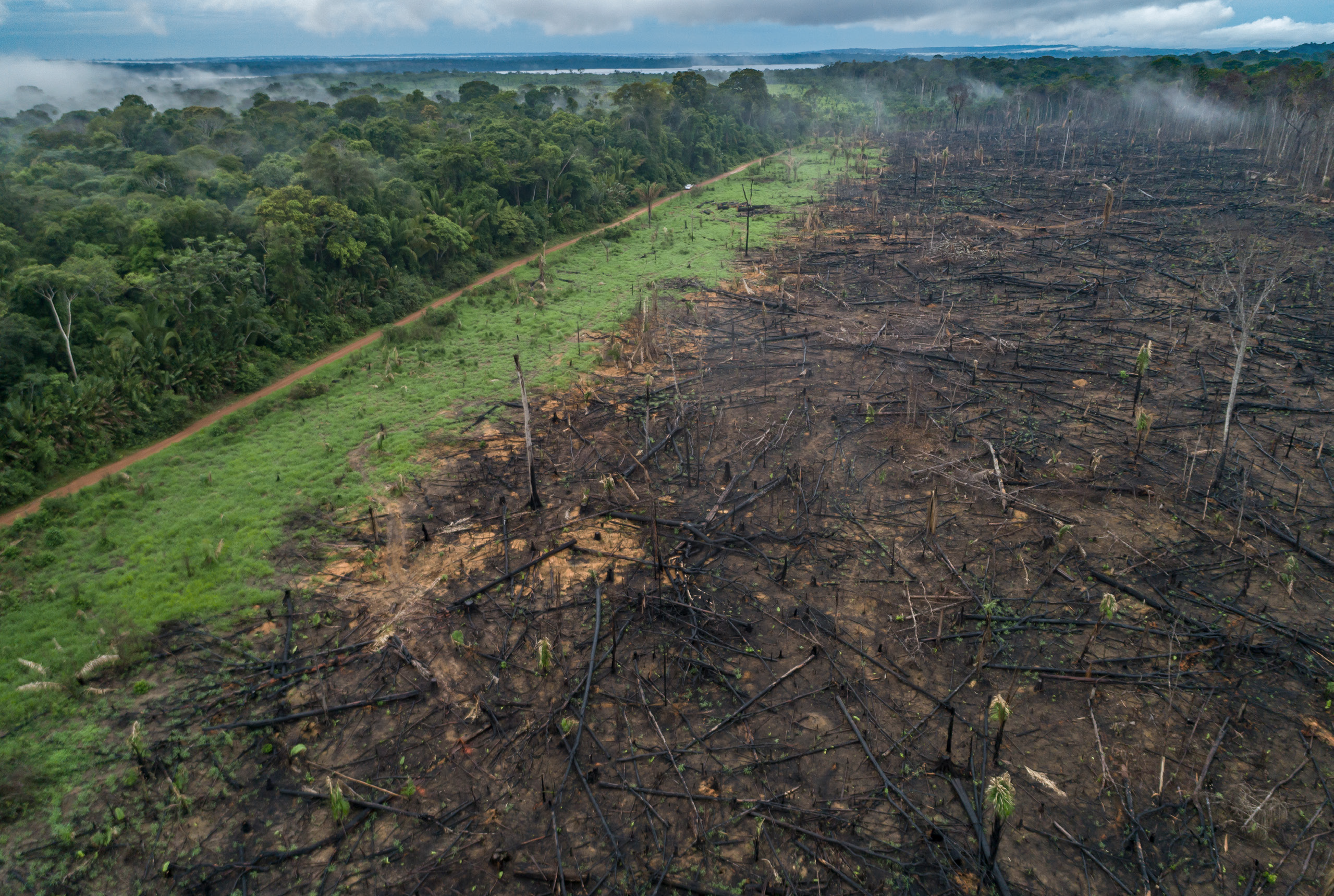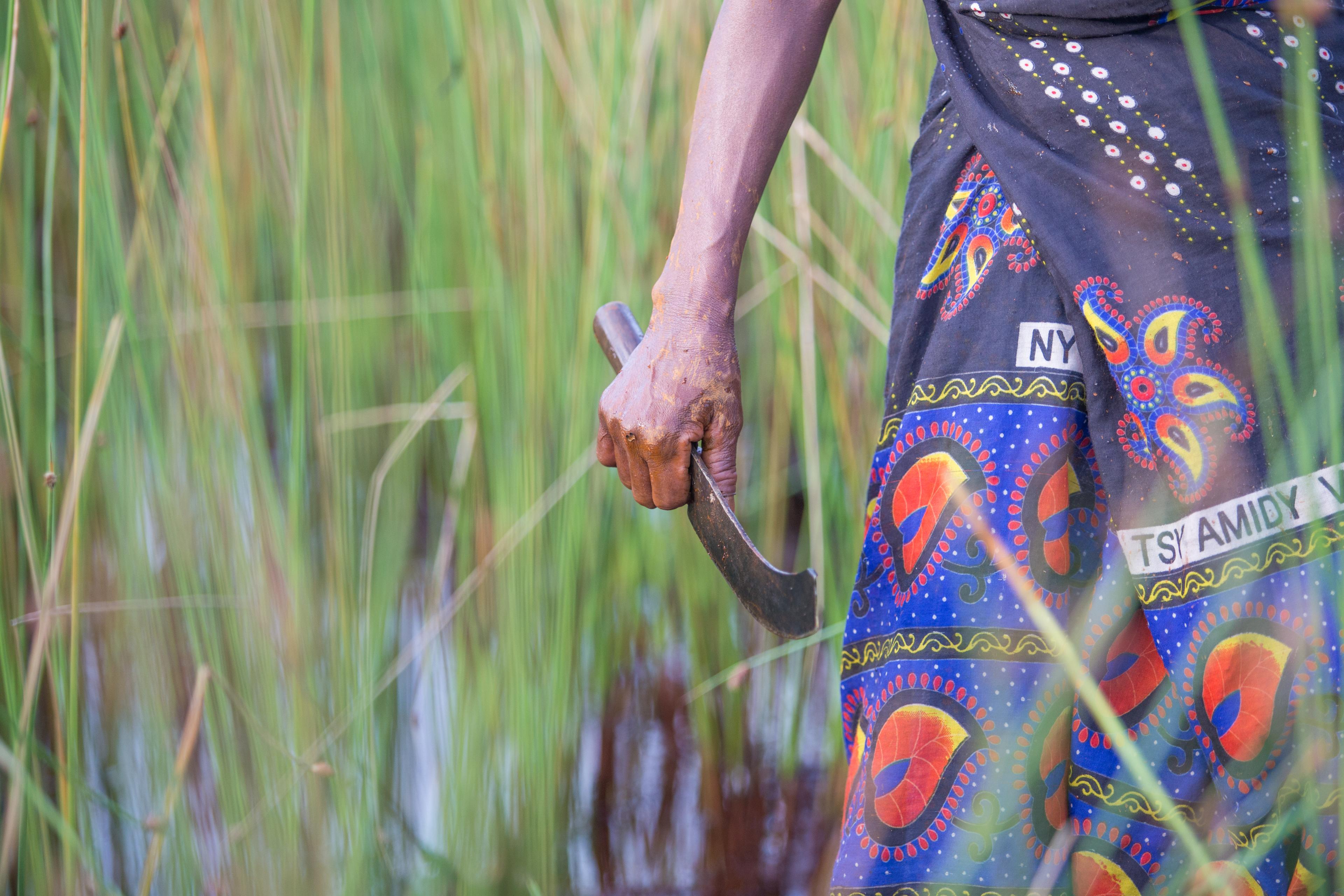Main points
- Using a political ecology approach, teams of researchers led by the U4 Anti-Corruption Resource Center studied select conservation projects in Peru, Madagascar, and Vietnam. This country-based analysis was complemented with secondary data, including a systematic literature review of over 900 publications, reviews of official documentation, and environmental change data on deforestation.
- This analysis addressed the fundamental research question, “What factors condition anti-corruption success and failure in renewable resource sectors?”
- Five recommendations emerged for conservation practitioners and donors seeking to scale efforts to target natural resource corruption: (1) further strengthen corruption risk analysis and management approaches in conservation; (2) promote and facilitate donor coordination at the global, regional, and country levels on environmental corruption; (3) further engage with and support civil society and journalists working on environmental corruption; (4) safeguard young and Indigenous human rights defenders calling out environmental corruption; and (5) bolster data availability for transnational law enforcement on environmental corruption.





